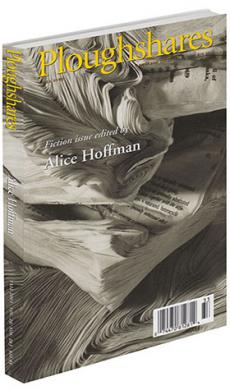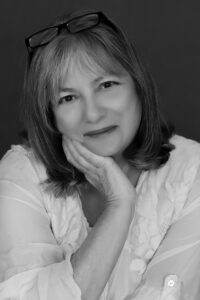Introduction
As a beginning writer, I had the good fortune to study with Albert J. Guerard, the greatest teacher of creative writing in the twentieth century. Guerard—novelist, teacher, and critic with equal intensity—taught at Harvard for twenty-three years, then at Stanford for another twenty-three, and was a mentor to many of the century’s most esteemed writers, including John Updike, John Hawkes, Maxine Kumin, Alice Adams, Alison Lurie, Frank O’Hara, Mark Mirsky, Tobias Wolff, Ron Hansen, and the hundreds of other talented fiction writers and poets who came to his classes in Cambridge and Palo Alto.
Professor Guerard believed that his primary duty as a professor of creative writing was to help each student find his or her unique and enduring voice. This personal voice was made up of energy, imagination, and language—it was the very core of who a writer was. Although Guerard was a great lover of ambiguity, a modernist who particularly enjoyed Hardy’s comment that "realism is not art," he never pushed any theoretical mode on any of his students. He did not favor "fabulists" over "realists," "experimental" writers over "traditionalists."
Surely there are writing programs where students are encouraged to take on the nuances of their teachers rather than explore the intricacies of their own inner voice. Such instruction makes it difficult to move from imitating an admired writer’s language and method to a more personal style. Guerard would have never approved of a literary copycat world. He loved rebels—Dostoyevsky, Dickens, Faulkner—and he broke all the rules of teaching creative writing. His motto was "Tell, not show." Write not just what you know, but what you imagine. The concept of a personal voice was at the heart of Guerard’s philosophy. Much the way Gide spoke of an author’s gait, Woolf an author’s rhythms, Guerard believed in this concept of the voice, the writer’s most authentic self.
In 1966 Guerard started the Voice Project at Stanford, headed by John Hawkes, to explore the relationship of personality to the diction and rhythms of writing. In Guerard’s view, the author’s voice came from the very same psychological impulse as his or her impulse to write. The elements that formed both the writer’s themes and obsessions and the expression of his or her material included childhood fantasy life, stories heard in childhood, personal experience, and, perhaps most importantly, dreams. Professor Guerard encouraged dreaming as the ultimate freedom, insisting that "discipline, clarity, and control" could all be taught eventually, but dreams, always unique and individual, were what literature was made of. "Without free dreaming," Guerard told us, "truly excellent fiction is hardly possible." As no two individuals had the same experience, in life or reading, nor the same dreams, none could possibly have the same fictional voice. The writer’s voice was like a fingerprint or a heartbeat: no two were the same.
As a graduate student I began to understand the true and practical meaning of "voice" for myself as a novelist-to-be when reading the text we used, which contained the work of only two women writers. One was Flannery O’Connor, the other, Grace Paley. I was twenty-one at the time, convinced that great literature was written by men, for men, that it was about war mostly, peace, less often. I had no understanding that domestic life is indeed political. Certainly, I had no real comprehension of the deep and lasting value of voice, until I read Grace Paley’s astounding and brilliant fiction. Reading Grace Paley’s work, hearing her singular and unique fictional voice, changed my life. It helped give me the freedom to search for my own voice, my own story to tell. That, of course, is what great fiction does: it opens a door you never even knew was there, it reminds you that the world isn’t always what you had assumed it to be, and that it is our job, as writers of fiction, to report from a front no one has ever visited before.
In this fiction issue of Ploughshares, there is great variety, many voices, real vision. What I looked for, and what I found in these stories, was a unique voice, a true surprise in language or tone or point of view. Powerful, haunting, heartbreaking, hilarious, cool, complicated, emotional, cerebral, transforming, each of the stories creates a universe, each is unique in its telling. In reading for Ploughshares, I was also searching for a reminder of why we tell stories in the first place, and why we read them. How does fiction matter in a world of terror and loss? If books themselves may not last, if paper may go up in flames, why do we still write? Why do we turn to reading fiction in the search for answers of what it means to be human?
As a child, I’d always looked to books for solace. It was fiction which helped to explain why the world worked the way it did, much the way dreams explain our waking lives. My first response after 9/11 was to take down from the shelves two books I had loved as a girl. I read Ursula Le Guin’s masterpiece, The Left Hand of Darkness, an emotional anthropologist’s vision of a world that, no matter how far away it might be, mirrors our own conflicts and hopes. I turned next to Fahrenheit 451, the masterful and visionary work by the author who made me want to be a writer in the first place, Ray Bradbury.
Reading had convinced me, long ago, that it is in fiction we find the purest voices. I agree with Professor Guerard’s declaration that "a writer’s truest self is not the person you meet, it’s the person you read"; that it is through fiction, and by breaking the rules of reality, that we find the greatest truths. Clearly, I went back to Fahrenheit 451 because I needed to remember that even in a world that is fractured beyond belief, a universe in which voices are silenced by terror and loss, there was a place in which people were willing to die for books, to live for books. They were willing, in fact, to become the books they loved, memorizing each one, word by word, voice by voice, so that literature could live on, even in a world without paper and print, reminding us once more: we are the stories we tell.
A special thank-you to Abelardo Morell, whose photograph is this issue’s cover. Morell’s brilliant A Book of Books elevates books to sacred objects, ruined or perfect, old or new, the treasures in a reader’s life, the repository of our dreams.

